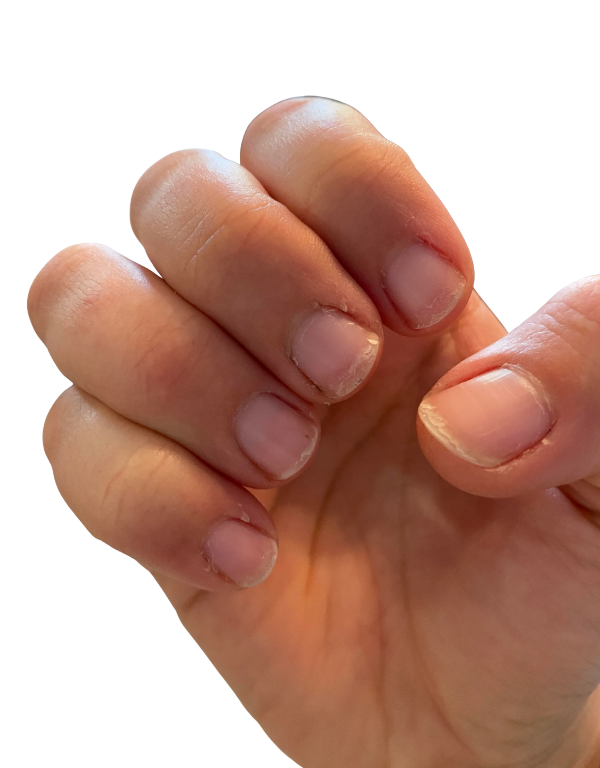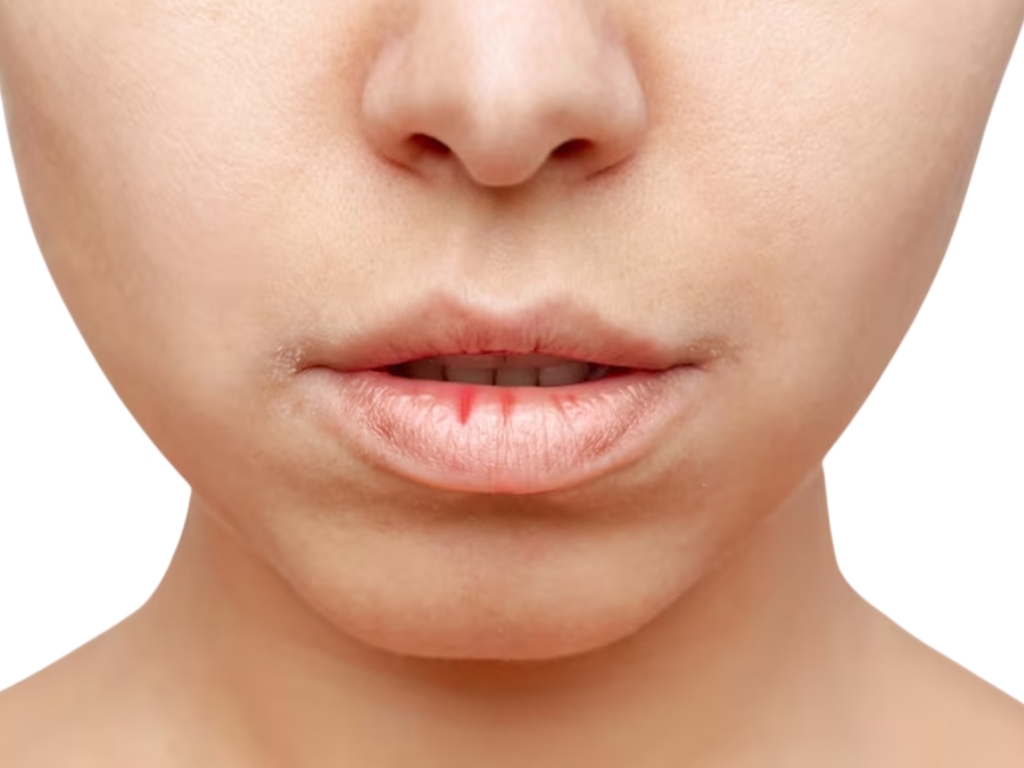You eat fairly well, you try to get some fresh air at least once a day, you make an effort to stay active, but something still feels…off.
It might be that your energy is dipping, your skin appears more sallow than usual, or you’ve had week-long brain fog clouding up your day-to-day. These are all symptoms that are easy to dismiss because they seem temporary or come and go. You might even assume it’s just a normal part of stress or ageing – but sometimes, they’re your body’s way of telling you that it’s not getting the nutrients it needs.
Vitamin deficiencies are very common and not just in people with restrictive diets. Sometimes just having a busy schedule means you eat more processed food, which affects your nutrient intake.
Here are ten of the most common clues your body is giving you to let you know you might be missing something important. We also discuss what you can do to address these.
1. Persistent Fatigue
Feeling a bit tired is a totally normal part of being human; what’s not normal is feeling like you’re dragging yourself through each day despite getting what feels like decent quality sleep. If you feel this way a lot more than you’d like to admit, you may be low in iron, vitamin B12 or vitamin D – they’re all necessary for energy production.
Here’s what you can do: If you suspect a vitamin deficiency – ask your GP for a blood test – and in the meantime, load up on iron-rich foods (leafy greens, lean red meat) or B12 sources (fish, eggs, fortified cereals).
In the UK, Vitamin D often requires supplementation with D3+K2, especially in winter.

2. Brittle Hair & Nails
Struggling with brittle nails that keep chipping or peeling, or finding more hair loss than usual when you brush? These are often signs your body may be missing key nutrients. While many people immediately think of biotin, zinc, or protein deficiencies, low iron levels are another common cause. Iron is essential for healthy hair growth because it supports DNA production in your hair follicles. Without enough iron, hair can become thin, stop growing, or start to fall out.
What helps: Focus on a balanced diet for hair and nail health. Include iron-rich foods alongside eggs, nuts, seeds, and whole grains. Don’t forget lean protein, as it provides the building blocks for strong nails and shiny hair. Even small changes in your nutrition can improve hair strength and nail growth over time.
This version targets searches like:
- Brittle nails cause
- Hair loss nutrition
- Foods for strong nails
- Diet for healthy hair and nails

3. Mouth Ulcers or Cracks in the Lip Corners
If you have recurrent mouth ulcers or painful cracks at the corners of your lips, this may be a sign that you have nutritional deficiencies instead of just stress or an infection. Low levels of certain B vitamins, including B2 (riboflavin) and B3 (niacin) – alongside iron or zinc deficiency make you more prone to these issues. These vitamins and nutrients play an important role in keeping the lining of your mouth and lips healthy. Deficiencies in these nutrients may make you more prone to developing canker sores or split skin around the mouth.
If you experience these symptoms, it’s best to speak with a healthcare professional. They can help check for vitamin deficiencies and advise whether simple dietary changes or supplements could improve healing.
What helps: Start eating a well-rounded diet featuring legumes, oily fish, lean poultry, and whole grains to support healthy skin and mucous membranes..
4. Vision Changes (Especially at Night)
We’ve all heard the old wives’ tale that eating carrots improves eyesight. While it’s not a miracle cure, there’s some truth to it — carrots, along with sweet potatoes and dark leafy greens like spinach, are rich in beta-carotene, which the body converts into vitamin A. Getting enough of these foods can support long-term eye health and help protect your vision. Vitamin A is massively helpful for eye health, particularly the retina, which allows you to adjust to darkness. Without enough vitamin A, the eyes can’t adapt properly, leading to night blindness and other vision problems..
What to do: Add more orange and dark green vegetables (carrots, sweet potatoes, spinach) to your plate. A balanced diet with colourful vegetables is one of the best natural ways to support healthy eyesight and reduce the risk of night vision problems.
5. Getting Ill Frequently
If you seem to catch every cold going around — sore throats, runny noses, or just feeling run down all the time — it could be more than bad luck. Frequent infections are sometimes a sign that your immune system is weakened, often linked to low levels of key nutrients such as vitamin C, vitamin D, and zinc. These nutrients are essential for supporting your body’s defences and helping you recover more quickly when you do get sick.
What you can do about it: Eating more immune-boosting foods can make a real difference. Fruits like oranges/lemons and other citrus fruits are high in vitamin C, and so are peppers and berries. Pumpkin seeds and chickpeas are rich in zinc. You can also buy these as supplements, but it’s best to consult your doctor if you’re dealing with frequent colds or low immunity.
6. Muscle Cramps and Tingling Sensations
Waking up at night with painful leg cramps, or you notice frequent pins and needles in your hands and feet – it could be more than just awkward sleeping positions or a pinched nerve. These symptoms can sometimes point to mineral deficiencies. Low levels of magnesium, calcium or potassium may affect how your muscles contract and how your nerves send signals, leading to cramps, spasms, or tingling sensations.
What you can do: Focus on a diet rich in muscle-supporting minerals. To your diet, add magnesium-rich foods like leafy greens, nuts, seeds, and dark chocolate alongside sources of potassium like bananas, sweet potatoes and avocados. For calcium, including dairy products or fortified plant milks is equally important. Staying well-hydrated and moderating caffeine and alcohol intake can also help reduce the frequency of muscle cramps and nerve tingling.
7. Pale or Sallow Skin
If people often tell you that you “look tired” even when you’re not, or you’ve noticed your skin looking unusually pale or sallow, it could be linked to a vitamin deficiency. Being low in either iron or Vitamin B12 can reduce red blood cell production, which means less oxygen is carried around the body. This lack of circulation affects skin tonewhich is why you end up looking pale. You might also notice feeling colder than usual or experiencing more frequent headaches or dizziness, subtle signs of low oxygen delivery.
What to do: To support healthy red blood cell production, try and eat foods richer in iron, like lean/red meats, shellfish, beans, lentils, and leafy greens, paired with vitamin C (like citrus fruits) to help with absorption. For vitamin B12, eat more fish, eggs, and fortified cereals. And if you’re plant-based, a high-quality supplement of B12 is probably essential.
8. Slow Wound Healing
If even a small cut or scratch seems to take forever to heal, it could signal a deficiency in vitamin C or zinc, because a small paper cut or scratch shouldn’t take weeks to mend. Vit C and Zinc are critical for collagen production and immune support. Without enough of these nutrients, the body struggles to repair tissue efficiently, leaving you more prone to infections or lingering skin problems.
What helps: Focus on adding Vitamin C-rich foods to your diet, like citrus fruits, strawberries, peppers and broccoli to your meals.. Also add sources of zinc, like pumpkin seeds, lentils and chickpeas. Supplements can also help, but it’s best to get personalised advice from a healthcare professional, especially if you experience frequent slow-healing wounds.
9. Brain Fog and Low Mood
Struggling to concentrate, forgetting small details, or feeling unusually low can sometimes be linked to nutrient deficiencies rather than lifestyle alone. A lack of B vitamins, omega-3 fatty acids, or vitamin D can all impact brain function and mood regulation. Without these nutrients, neurotransmitters – the brain’s chemical messengers – may not work as efficiently, leaving you feeling mentally sluggish, unfocused or emotionally flat.
What helps: For sharper thinking and better mood balance, include oily fish like salmon, sardines, or mackerel for omega-3s. Nuts, seeds, and leafy greens are excellent sources of B vitamins to support energy and brain health. Vitamin D is trickier to get from food alone, so safe sun exposure or a quality supplement can make a noticeable difference, especially if you struggle with low mood or brain fog..
10. Bleeding gums, sore mouth
If you find yourself getting mouth ulcers more often than you’d like or have bleeding gums, or general soreness in the mouth, it isn’t always a dental issue or gum disease – in fact, these symptoms can be linked to a deficiency in Vitamin C or even B12. Vitamin C is essential for collagen production, which keeps your gums and connective tissues strong, while B12 supports healthy red blood cells and tissue repair.
What helps: Always see a dentist first to rule out dental problems, but it’s also worth asking your GP for a blood test for vitamin deficiencies. If low vitamin C or B12 is the cause, simple changes can make a big difference. Aim for at least 1.5–2 cups of fruit and 2–3 cups of vegetables each day, including vitamin C–rich foods like citrus fruits, peppers, and broccoli. For B12, focus on fish, eggs, and fortified cereals — or consider a high-quality supplement if you’re plant-based.
Seeking professional advice
Here at The Health Suite, we regularly see patients who suspect they may have a vitamin or mineral deficiency. It may be tempting to self-diagnose and start supplementation, but sometimes over-supplementation is as harmful as a deficiency, so we recommend professional guidance. That’s why we always begin with a consultation and blood tests where needed, so we can understand your body’s exact needs.
At The Health Suite Leicester, we offer blood testing and nutritional support that’s specific to your lifestyle, so you can pinpoint exactly what your body needs and address it swiftly. We might recommend dietary changes, supplementation, or even offer you IV nutrient therapy – all of our options are here to get you feeling your best again.
Boost your health with tailored Nutritional Therapy — start addressing vitamin deficiencies today.
